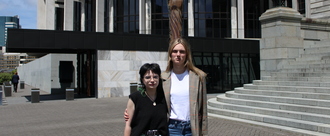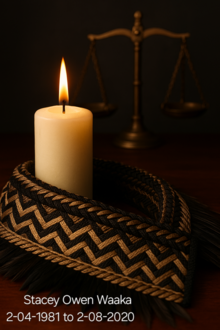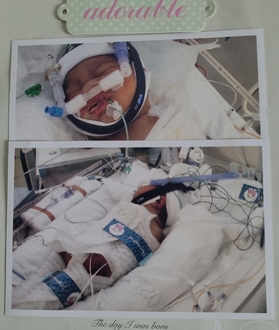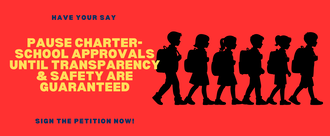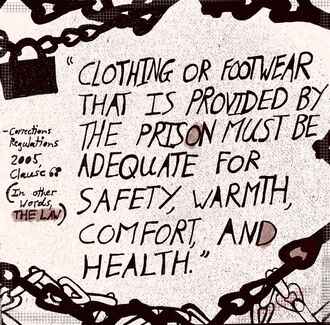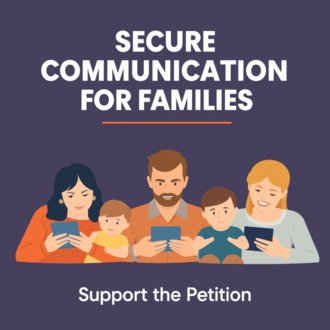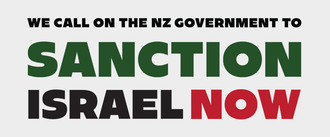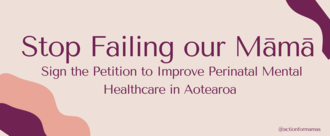-
Legalise Cannabis and Reform Drug Law in AotearoaWith over 15% of Aotearoa, and over 30% of Māori (1), having used cannabis obtained through illegal markets in 2024, the legalisation of cannabis for recreational use would clearly be beneficial to the mana, money and health of a large number of New Zealanders. It’s been over 5 years since the narrowly failed 2020 Referendum, and surveys show that a vast majority of the public is now in favour of some sort of drug law reform(2). What are the reasons that consumers, non-consumers and public advocates like New Zealand Drug Foundation(3) support the drafting and passing of new legal cannabis legislation? Firstly, in a legal market, users would have access to more information about what they are consuming as well as the potential health risks it carries, and would not be presented with the option to buy other more harmful drugs while purchasing cannabis (one of the major factors involved in the ‘gateway drug’ myth). Improving public discourse and reducing stigma would begin to restore the mana and dignity of individuals and communities that have been harmed by negative narratives around illegal drug use. From an economic perspective, in addition to an estimated $1–1.5B in tax revenue(4) from the legal market, many desperately needed safe and sustainable jobs would be created, providing better opportunities for those stuck in the dangerous and unstable world of the illegal market. With less resourcing of illegal trafficking and more resourcing of education and harm-reduction services, a legal marijuana market would create safer and healthier communities. Finally, there is the obvious issue of how cannabis users are treated by the legal system. There is a common misconception, spread most often in privileged communities, that “weed is practically legal” in Aotearoa. From 30th June 2024 to 30th June 2025 alone, 180 people were convicted for simply using or possessing cannabis(5) (not including those who possessed cannabis with intent to traffic). If that number does not seem particularly high, consider that cannabis related charges were involved in over 3600 court cases during this period(5); so cannabis prohibition, that goes against the advice of domestic experts and the view of the general public, is still being weaponised as a tool of punishment in our legal system. And of course, the most devastating effects of prohibition happen outside the courtroom, with the overpolicing of marginalised communities. A 2024 investigation by Aotearoa Justsice Watch found “concerns about improper searches” to be the most dominant theme in submissions about police conduct (6), and racial profiling causes Māori and people of colour to be more heavily targeted for warrantless cannabis searches. Recent roadside drug-testing laws use inaccurate testing methods that over-police drivers who had most recently consumed cannabis days before, and even affect prescription cannabis users (7). Even in places overseas where cannabis has been legalised, poor policing laws allow cops to harass and search citizens on suspicion of engagement in illicit dealing or production, causing much of the same profiling and violence that occurs under total prohibition. A requirement of police to use non-invasive means such as photography to capture evidence of actual illicit transactions, rather than searching private property for stashes exceeding an arbitrary legal threshold, would more effectively minimise contact between law enforcement and the communities that are most harmed by cannabis prohibition. Improved transparency around drug policing would be a step towards fairer policing, and safer communities. These reasons, and this petition, are only a partial representation of the rich and diverse perspectives that exist in support of cannabis legalisation in Aotearoa. We, the undersigned, call on the government of Aotearoa to take urgent action in acknowledging our demands and seeking wide-ranging consultation to create more fair, equal and safer cannabis legislation for Aotearoa. Sources: 1. https://drugfoundation.org.nz/news-and-reports/report-drug-use-in-aotearoa-202324 2. https://www.nzherald.co.nz/northland-age/news/nationwide-poll-shows-majority-want-cannabis-laws-relaxed/Y6QCN5T63NFMBMKYTOYV66KYRQ/ 3. https://www.rnz.co.nz/news/political/575403/decriminalising-drug-use-best-way-to-combat-rising-addiction-report-finds 4. https://drugfoundation.org.nz/news-and-reports/berl-report-shows-nz-will-be-better-off-under-legal-cannabis. 5. Ministry of Justice Cannabis Offences Table, June 2025 version, downloaded from https://www.justice.govt.nz/justice-sector-policy/research-data/justice-statistics/data-tables/ 6. https://amnesty.org.nz/new-report-mistreatment-by-police-and-prison-officers/ 7. https://drugfoundation.org.nz/news-and-reports/roadside-drug-testing-what-you-need-to-know131 of 200 SignaturesCreated by Reeferendum 2026
-
Reverse the decision to deny transgender and takatāpui young people access to puberty blockersDear Minister Simeon Brown We write to you as transgender and takatāpui young people of Aotearoa New Zealand to ask you to reconsider your decision to ban the use of puberty blockers (gonadotropin-releasing hormone analogues) by transgender young people. To be transgender or takatāpui is a taonga. To deny our young people access to life-saving medication on the basis of an imported culture war is cruel and abhorrent. Trans young people are some of our most at-risk youth. Not because of who they are, but because of how our society treats them for something they have no control over. Denying our rangatahi an effective medication that gives them the time to discover who they are is needlessly cruel. According to Counting Ourselves 2022, 77% of trans people experience high or very high psychological distress, compared to just 12% of the general population. When compared to the fact that 95% of trans youth have a positive impact on their mental health from the use of puberty blockers, how could such a vital medical intervention be ignored? This decision is an infringement on human rights and medical autonomy, as stated by Te Kāhui Tika Tangata The Human Rights Commission. Denying access to essential healthcare for trans and takatāpui youth is going to cause unnecessary harm and distress to not just young people but to their whanau as well. The fact that it is only our gender diverse youth that are denied this care, and not the general population, is clear discrimination designed to target our most vulnerable. We urge you to reconsider your decision and put our young people’s health ahead of politics. Sincerely Lauren Craig & Ngahuru Autumn Brown9,372 of 10,000 SignaturesCreated by Lauren Craig & Ngahuru Brown
-
CORONIAL REOPENING, TRANSPARENCY & REVIEW PANEL REFORMExplanation for the Coronial Reform Petition. On 2 August 2020, our family lost a loved one while he was in police custody. We entered the coronial process seeking clarity, accountability, and honest answers about the circumstances that led to his death. Instead, we discovered a system marked by silence, delay, and limited transparency. Key information was difficult to access, critical evidence was incomplete or disputed, and the pathway to a reopening was unclear and dependent on discretion rather than consistent standards. Our family’s experience is not isolated. Across Aotearoa, many whānau who lose loved ones in sudden, unexpected, or police-related circumstances remain trapped in the same uncertainty — grieving without answers, and living with unresolved questions that could be clarified through a fair, timely, and transparent coronial process. When essential information is withheld or delayed, when evidence remains untested, and when decisions are made without full disclosure, families are left without closure and justice is left unfinished. Systemic Pattern of Failure (Public Record Context) Public oversight findings and Official Information Act material identify a recurring pattern in deaths occurring in Police custody in Aotearoa New Zealand that extends beyond delayed medical response. These findings document failures of duty of care, including inadequate monitoring, delayed recognition of medical distress, delayed escalation to emergency care when individuals became unresponsive, and inconsistencies between recorded custody checks and what occurred in practice. Oversight bodies have also identified concerns relating to custody-environment conditions, supervision, and information handover, all of which engage fundamental issues of human rights, dignity, and the lawful treatment of people deprived of their liberty. These matters are not raised to draw conclusions about Stacey Owen-Waaka’s death, but to establish that the State’s failure to consistently uphold its duty of care in custody settings is a documented systemic issue on the public record, warranting careful coronial scrutiny, transparency, and accountability. Public record context includes IPCA findings and information released under the Official Information Act (OIA) relating to deaths in Police custody. 1) IPCA - Death of Jaye Taueli (Police custody) https://www.ipca.govt.nz/Site/publications-and-media/2023-reports-on-investigations/2023-jun-27-death-jaye-taueli-police-custody.aspx 2) IPCA - Death of Faasala Samu Matue (Police custody) https://www.ipca.govt.nz/Site/publications-and-media/2025-media-releases/2025-mar-12-investigation-death-matue-.aspx 3) IPCA - Death of Lynne Martin (Police custody) https://www.ipca.govt.nz/Site/publications-and-media/2025-media-releases/2025-mar-25-death-custody-gisborne-duty-care.aspx 4) IPCA - Death of Dwayne Walters (Police custody) https://www.ipca.govt.nz/Site/publications-and-media/2016-Media-Releases/2016-MAR-17-Death-in-custody-of-Dwayne-Walters.aspx This petition calls for reform because the current system does not adequately protect families or uphold public confidence. We need a coronial process where: • full disclosure is guaranteed, • decisions on reopening are timely and transparent, • independent review safeguards are in place, and • every family, regardless of their background or circumstances, has a clear and equitable path to answers. Families should not have to fight for basic information about how their loved one died. They should not be left carrying the burden of uncertainty for years. Reform is necessary because unanswered questions prolong trauma, undermine trust, and prevent genuine accountability in cases where state agencies are involved. This petition is not just about one family or one date. It is about ensuring that every death investigated by the coronial system is treated with the dignity, fairness, and transparency that whānau deserve. For the sake of those who have died in unreasonable circumstances — and for the families who continue to wait for truth — this system needs change. Reform is overdue, and the voices of affected families must finally be heard.389 of 400 SignaturesCreated by Belinda Wharehinga

-
ACC SYSTEMIC MALADMINISTRATION & MANDATORY TIMEFRAME REFORMSI care deeply about this issue because I have seen firsthand how ACC delays, lost documents, and repeated administrative failures cause real harm to ordinary New Zealanders. The image above is the beginning of our story — a child fighting for life while a system meant to protect us repeatedly failed. Our petition speaks not only for her, but for every whānau still trying to survive the consequences of ACC’s neglect. When decisions take months or years, families are left without income, without treatment, and without answers. These are not isolated mistakes — they are systemic failures affecting people from every region and every background. No New Zealander should suffer financially or emotionally because an agency did not meet its basic responsibilities. Timely decisions and clear accountability are not luxuries; they are the foundation of a fair and trustworthy public system. This reform is about ensuring that every person in Aotearoa is treated with dignity, urgency, and justice.146 of 200 SignaturesCreated by Belinda Wharehinga

-
Pause Charter-School Approvals Until Transparency & Safety Are GuaranteedOur children deserve access to safe and integrity-driven education. Right now, companies like Crimson are pushing charter schools through with almost no oversight, while making money off private tutoring. There’s already been abuse in one of their programs - a tutor with past convictions actually harmed children - and that shows the system isn’t keeping kids safe. At the same time, schools that are doing things right, like The Liger Leadership Academy, are being denied approvals. And Kelston Boys had its governance documents redacted in a way that makes it impossible to verify what actually happened. It’s not just bureaucracy - it’s about who gets to shape education for every kid in NZ. If Parliament doesn’t pause and review this properly, we’re basically giving public money and control to private interests with no accountability. That’s why I’m pushing this petition: it’s about safety, fairness, and protecting public education for everyone.2,592 of 3,000 SignaturesCreated by Brie Anglesey
-
Get people in prison the basic supplies they are legally entitled toThe Department of Corrections is failing to provide basic necessities like hygienic bedding, underwear, socks, shoes and thermals. This is a breach of human rights and a failure to care for those in state care. We demand that the Department of Corrections does better. People Against Prisons Aotearoa has been supporting prisoners individually with these needs, but as the situation worsens it has become apparent that work needs to be done to ensure that all prisoners receive appropriate clothing as a necessary part of Corrections custody. In the 2024/2025 year, PAPA provided people in prison with: • 240 pairs of underwear • 255 pairs of socks • 111 pairs of shoes • 102 thermals. In general, the requests PAPA have been receiving are because: necessary items are not being provided at all, the number of items provided isn’t sufficient for hygienic purposes or because the quality of these items doesn’t meet people’s basic needs. Why does Corrections not face legal consequences for failing its responsibilities to keep prisoners clean and warm? Corrections need to start doing their job. People Against Prisons Aotearoa will no longer be responsible for patching holes left by the Department of Corrections failing to meet its legal obligations, and a Government that fails to address this! We need you and the people of Aotearoa New Zealand to help us demand the Department of Corrections do their jobs and fulfil their legal responsibility. *image by Min Iles962 of 1,000 SignaturesCreated by People Against Prisons Aotearoa

-
Deliver on your promise: A new single Redress Agency for survivors of abuse in care!We all want Aotearoa New Zealand to be a place where everyone can thrive. Certainly a place where survivors of abuse in State Care and in the Care of Faith-based Institutions can thrive. We know that what has happened to the estimated 250,000 vulnerable adults, children, and babies is a “national disgrace” according to Judge Coral Shaw, former Chair of the Abuse in Care Royal Commision of Inquiry. The Abuse in Care Royal Commission of Inquiry’s Final Report, Whanaketia: Through pain and trauma, from darkness to light, was very clear: “"As an immediate priority, the government and faith-based institutions should implement the 95 recommendations in the Inquiry’s interim report on redress, He Purapura Ora, he Māra Tipu: From Redress to Puretumu Torowhānui (2021), together with the recommendations of the design group, subject to any further recommendations made in this report." [1]” The Interim Report, He Purapura Ora, he Māra Tipu from Redress to Puretumu Torowhānui, has 95 Holistic Recommendations to improve the current redress systems (Ministry of Social Development, Ministry of Health, Oranga Tamariki - Ministry for Children and Ministry of Education) for survivors of abuse in care [2]. Summary of the redress recommendations are: • expansion of oranga, or wellbeing, services and support services for survivors and their whānau; • increased financial payments for survivors; • training for those working with survivors; • enactment of a right to be free from abuse in care, as well as a duty to protect this right; • an exception to accident compensation legislation; • improvements to the handling of survivors’ requests for records, including as few redactions of survivors’ records as possible; and, • a review of record-creation and record-keeping practices. On the 12th of November 2024, the Prime Minister, RT Hon. Christopher Luxon, finally and formally apologized to survivors of abuse in State and Faith-based care. He apologized to survivors for the horrific and harrowing abuse they have experienced while in care, he apologized to their family and whānau and he outlined some steps that the Government will take to address the Final Report of the Inquiry. He said: “"But I want to assure you it is our intention to have a new single redress system operating next year." [3]” On the 9th of May 2025, the Lead Coordination Minister, Hon. Erica Stanford announced changes to the redress system for abuse in care survivors. She announced: • Increasing the average redress payments for new claims from $19,180 to $30,000; • Providing for higher payments for the survivors who experienced the most egregious abuse; • Providing “top up” payments of 50% to survivors who have already settled claims to ensure consistency with increased payments for new claims; • Introducing a common payments framework so that survivors receive the same financial redress for similar experiences of abuse, regardless of where in state care that abuse occurred; • Increase system capacity to process claims from 1,350 to 2,150 per year from 2027 to reduce wait times for current claimants; • Implementing a seamless service so that survivors with claims with multiple agencies have those claims managed by one point of contact; • Introducing a single-entry point for survivors wanting to register new claims; • Introducing an independent review for people who are unhappy with their redress offer; and • Funding for redress agencies to provide survivors with access to supports and services. She said: ““I acknowledge that a key recommendation of both the Royal Commission and the Redress Design Group was for a new independent redress entity. “The Government was faced with a difficult choice: do we spend more time and money on setting up a new scheme, or do we provide more to survivors now through the current redress process? “For Budget 25 we have prioritised improving the current system as quickly as possible for survivors and investing in changes that have a direct impact for them." [4]” To date, the Government has only implemented 28 of the 135 recommendations from the Abuse in Care Inquiry that relate to the Government. [6] These reports from the inquiry shed light on the harrowing and horrific experiences that survivors faced while in the care of the state and faith-based institutions, and emphasise the profound impact that abuse has had on survivors’ lives. Now is the time for action: for people across Aotearoa to come together and be part of the process that ensures that survivors in Aotearoa can thrive. By signing this petition, you are standing up for the rights of survivors and sending a clear message to the Crown: They have a duty of care to survivors, and a duty to implement a new single redress agency and implement all of the recommendations from the Abuse in Care Royal Commission of Inquiry. Together, let's ensure that survivors are supported. Join us in this crucial fight by signing the petition today and spreading the word to your friends, family, and community. Together, we can make a difference and safeguard the future of care and help survivors of abuse in State and Faith-based Care to thrive. _________ References: 1 - https://www.abuseincare.org.nz/reports/whanaketia 2 - https://www.abuseincare.org.nz/reports/from-redress-to-puretumu/ 3 - https://www.1news.co.nz/2024/11/12/full-text-of-prime-ministers-apology-for-abuse-in-care/ 4 - https://www.beehive.govt.nz/release/budget-2025-invests-care-system-and-improving-redress-survivors-abuse-state-care 5 - https://www.abuseinquiryresponse.govt.nz/assets/Uploads/Proactive-release/Putahi-te-mauri-he-wai-ora-e-Redress-design-proposals-1.pdf 6 - https://www.abuseinquiryresponse.govt.nz/about-us/official-information/information-releases/cabinet-papers-and-minutes/proactive-release-of-decisions-about-the-governments-response1,188 of 2,000 SignaturesCreated by Ihorangi Reweti Peters

-
Open Letter: Urgent Consent Law Reform Needed in AotearoaShifting Public Expectations vs Outdated Law There is a growing gap between modern views of consent (especially among youth) and what our laws say. Schools and public discourse now emphasize that consent must be active and affirmative – that a “hesitant or reluctant” response is not true consent. Yet legal practice still often treats such behavior as consenting. Juries have been told that reluctant consent “is still consent”, directly contradicting how consent is taught in schools. HELP Auckland captured this sentiment at the petition launch: our youth are demanding a law that reflects the principle of “free and voluntary agreement”. Unless the law is updated to match contemporary understanding, we send a confusing message: that societal norms around respectful intimacy count for nothing once a case goes to trial. Current Political Context Since the 2023 election, progress on consent law reform has stalled. The new Coalition government has so far taken only a narrow step by amending the law to protect children under 12. Unfortunately, no similar initiative has been announced for older teens or for defining consent itself. Call to Action This reform has been called for repeatedly, supported by the public, and even acknowledged across political parties, but no government has yet made it a priority. Without prioritisation, change will never happen. Survivors will continue to be failed, and a broken system will remain in place. Parliament must enact an affirmative definition of consent — one based on free and voluntary agreement — and address age-based loopholes that allow predators to exploit teenagers. The Justice Select Committee has already given us a roadmap for change, and it is imperative that lawmakers follow through. A reformed consent law, shaped by survivors’ experiences, will better protect young people and demonstrate that Aotearoa’s legal standards match the values of its people. We call on the government to put this issue back on the agenda now, rather than delaying it further. To read our full letter, click on this link. If you would like to sign on behalf of your organisation, and add your logo as an organisational signatory, please contact Imogen Stone at [email protected].934 of 1,000 Signatures
-
No More Risk, Safe Ways For Families To Stay In TouchWe want a New Zealand where families of people in custody can stay connected safely, without fear, and where tamariki (children) continue to have meaningful contact with their parents. A world where incarceration does not unnecessarily harm children or whānau, and where rehabilitation is supported by strong family bonds. Currently, families often must provide their personal residential addresses to maintain contact with loved ones in prison. This creates significant safety and privacy risks, especially for caregivers and children. Many families are reluctant to communicate regularly because of these risks, leaving children isolated from their parent, and weakening family support structures that are proven to help reduce reoffending. This situation disproportionately affects vulnerable families, creating inequity and stress. For children, inconsistent or unsafe contact with a parent can have lasting emotional and social impacts, including anxiety, disrupted attachment, and increased risk of poor outcomes in education and wellbeing. Research consistently shows that maintaining strong family connections during incarceration: • Reduces recidivism: children and families can be a protective factor supporting rehabilitation.[1] • Supports tamariki wellbeing: consistent contact with a parent fosters emotional stability and resilience.[2,3] • Promotes fairness and equity: no family should have to risk safety to stay in touch. Currently, the lack of a secure, monitored communication platform prevents New Zealand from realizing these benefits. Families must choose between safety and contact, an impossible choice that can harm both parent and child. Implementing a secure electronic communication system: • Allows families to communicate safely without sharing private addresses. • Provides a child-focused option, letting tamariki exchange messages, drawings, or school updates safely. • Supports rehabilitation for people in custody by strengthening family bonds. • Reduces stress and safety risks for caregivers, improving overall family wellbeing. This issue needs to be addressed NOW because children are currently missing out on consistent contact with their parents, and families continue to face unnecessary risk. Modern secure communication systems exist internationally and could be adapted for Aotearoa, making this solution both feasible and timely.[4] References & Supporting Facts: [1] Reducing Re-offending (Corrections NZ): https://www.corrections.govt.nz/resources/strategic_reports/corrections_strategic_plans/creating_lasting_change_2011_-_2016_YR3/reducing_re-offending [2] Murray, J., & Murray, L. (2010). Parental incarceration, attachment and child outcomes.https://www.tandfonline.com/doi/abs/10.1080/14751790903416889 [3] Bowlby, J. (1988). A Secure Base: Parent-Child Attachment and Healthy Human Development.https://www.increaseproject.eu/images/DOWNLOADS/IO2/HU/CURR_M4-A13_Bowlby_(EN-only)_20170920_HU_final.pdf [4]Secure Video Calls with Prisoners - GOV.UK: https://www.gov.uk/guidance/visit-a-prisoner-using-a-video-call63 of 100 SignaturesCreated by Tania Topia
-
NZ Government Sanction Israel NowSince October 2023 the world has witnessed the state of Israel perpetrate innumerable war crimes and human rights violations against the people of Gaza [1], while the violence, repression, and forced displacement of Palestinians in the West Bank and East Jerusalem has escalated [2]. But this violent oppression has been the modus operandi of the decades-long Israeli occupation. The International Court of Justice [3] along with international human rights organisations [4] have repeatedly laid bare the Israeli occupation’s systematic breaches of international law, discriminatory apartheid regime, and abuses of Palestinian human rights. People of conscience in Aotearoa New Zealand have been steadfast in their opposition to Israel’s disregard of fundamental human rights of Palestinians, international legal frameworks and institutions. Across the country we have been standing up for our common humanity and to maintain the integrity of the international law that is meant to keep us all safe. The time of impunity for Israel's occupation and unlawful and dehumanising behaviour must end. We demand that the New Zealand Government impose economic, diplomatic and military sanctions on Israel as a concrete consequence for its breaches of international law and human rights violations. What action can New Zealand take to stand firmly for justice for Palestine? Just as Russia was swiftly and firmly sanctioned for its unlawful invasion and occupation of Ukraine, sanctions should be applied against Israel for its unlawful occupation of Palestine and its innumerable breaches of international law and human rights violations. We believe that sanctions are a just, meaningful and non-violent way for New Zealand to: • stand up for the human rights of Palestinians and all people currently suffering under Israel's illegal occupation and apartheid regime; • take concrete legislative action to back up our statements and the UN Resolutions we have supported to advance justice and peace in Palestine and Israel [5]; • comply with our obligations under international law and commitments under international humanitarian law; and • contribute to maintaining the integrity of the rules-based international order and uphold an independent and moral foreign policy. Standing up for the fundamental human rights of Palestinians is a matter of conscience. By delivering concrete consequences to Israel for its actions, our Government can uphold Aotearoa New Zealand’s commitment to the human rights and dignity of all people, adhere to our responsibilities at international law, and stand on the right side of history. We call on the Prime Minister and Minister of Foreign Affairs to show moral courage and impose sanctions on Israel without delay and until it complies with its obligations under international law. With integrity to the ethical, non-violent and anti-racist principles of the Palestinian-led BDS Movement, the campaign for sanctions against the Israeli occupation of Palestine seeks to ground these principles in the context of Aotearoa. Alongside rejecting all forms of racism including anti-semitism and Islamophobia, a kaupapa which opposes settler colonialism abroad must respect the authority of mana whenua in our respective rohe. Working alongside iwi Māori to honour, defend and advance Te Tiriti o Waitangi is critical to opposing the colonisation of Palestine. The campaign for sanctions is the collective effort of the Palestinian solidarity movement of Aotearoa. References [1] https://www.ohchr.org/en/press-releases/2024/10/un-commission-finds-war-crimes-and-crimes-against-humanity-israeli-attacks; https://news.un.org/en/story/2025/06/1164496 [2] https://news.un.org/en/story/2025/01/1159411; [3] Legal Consequences Arising from the Policies and Practices of Israel in the Occupied Palestinian Territory, including East Jerusalem (Advisory Opinion) [2024]. [4] Report of the Special Rapporteur on the Situation of Human Rights in the Palestinian Territories Occupied Since 1967 (A/HRC/49/87); Amnesty International Israel’s Apartheid Against Palestinians (2002); B’Tselem A regime of Jewish supremacy from the Jordan River to the Mediterranean Sea: This is apartheid (2021); Human Rights Watch A Threshold Crossed Israeli Authorities and the Crimes of Apartheid and Persecution (2021) [5] In September 2024 New Zealand joined 123 other United Nations member states in supporting the United Nations General Assembly Resolution ES-10/24, which affirmed the International Court of Justice’s advisory opinion that Israel’s presence in the Occupied Palestinian Territories (OPT) was unlawful. New Zealand was also the co-sponsor of UNSC Resolution 2334 which affirmed the Israeli settlements in the OPT were unlawful.22,771 of 25,000 SignaturesCreated by Aotearoa for Palestine
-
Stop Failing our Māmā: Improve Perinatal Mental Health Services in AotearoaWith the repealing and replacing of the Mental Health Act currently taking place, now is the time to get this important issue in front of decision makers to ensure provisions are in place in the new legislation to ensure better outcomes for mothers who suffer from a perinatal mental illness. ⚠️ The Issues: • Capability of perinatal mental health services. Currently, there is a significant shortage of resources, leading to a reactive, crisis-driven approach where individuals often only receive help when they are in urgent need, much like an 'ambulance at the bottom of the cliff' response. This results in many not getting the proactive and voluntary care they require until it's too late, and thus results in compulsory treatment orders, or worst case scenario, tragic outcomes. • Lack of Specialised Care: Current mental health services are insufficiently equipped to support postpartum women, particularly in general psychiatric wards that fail to address the specific needs of mothers. • Trauma of Separation: The separation of mothers from their newborn babies during such a vulnerable time is profoundly damaging to both the mother and the child, exacerbating mental health struggles and hindering recovery. • Need for Accessible Mother and Baby Units: There is an urgent need for mother and baby units that are accessible to all women (including in the regional areas) that would allow mothers experiencing postpartum mental illness to receive the care they need while remaining with their infants, promoting healing and the vital mother-child bond. 💬 Why is this issue important to me? In 2022, after a complicated pregnancy and birth, I unfortunately developed an acute postpartum mental illness. Despite seeking help voluntarily (which included a declined referral to Maternal Mental Health whilst pregnant, requests for support while becoming unwell in hospital postpartum, and two subsequent visits to the Emergency Department where I was sent home), I was eventually sectioned under the Mental Health Act (1992), and separated from my son just three weeks postpartum. I was placed in the general psychiatric ward in Tauranga, a space that was terrifying, unsafe, and not suitable for a new mother experiencing a postpartum mental illness and recovering from childbirth. The experience left me traumatised, with symptoms of PTSD and severe depression for the first two years of my son’s life. Through my advocacy, I’ve since learned that many others have faced similar trauma due to systemic gaps in perinatal mental healthcare. The lack of specialised support has long-lasting impacts, not only on the mother and baby, but also fathers, and the wider whānau. In 2023, around the time of my son’s first birthday, I wrote to the hospital and public health services to genuinely engage about the issues I faced and suggest areas for improvement. My concerns were dismissed. This led to a decline in my mental health and forced me to step back. But in 2024, I read about the Mental Health Bill (the legislative reform of our Mental Health Act) in the Mental Health Foundation’s newsletter – and decided that this was the right time to speak out, while the issue was on the agenda for decision-makers. I made a written submission on the Mental Health Bill in December 2024, and delivered an oral submission to the Health Committee in February 2025. In May, I started an advocacy page on Instagram called @actionformamas. This is where I raise awareness and share content to help break the stigma of perinatal mental illness, including postpartum psychosis, which is a terrifying yet highly treatable perinatal mental illness that carries a lot of stigma and shame. This illness is what I experienced after the birth of my son. ✅ The Solutions • Provide proactive, compassionate, culturally appropriate, and specialist care for women who experience severe perinatal mental illness • Prevent traumatic separations, supporting recovery and bonding between māmā and pēpi • Ensure appropriate and sufficient services are in place to improve mental health outcomes for whānau across Aotearoa By improving perinatal mental health services and funding dedicated mother and baby units, we can ensure that no mother is forced to endure the traumatic separation from their newborn or face inadequate care in a general psychiatric ward. This is essential for the well-being of both mothers and their babies, and it is a necessary step in improving mental health care for all New Zealanders. ✍️ Add your name to support this change. Together, we can stop the trauma and start healing. No māmā should be left behind.1,738 of 2,000 SignaturesCreated by Kristy Maguire
-
Women, girls & people assigned female at birth with Endo deserve better: Demand guideline review nowNo matter who we are, or where we come from, we all deserve to live a life of dignity, free of pain and struggle. A life where we are believed and we have access to the care that we need. However, there are thousands of us every day who live in the abrupt edges of medical understanding and right now, there are far too many women, girls, and people assigned female at birth are being dismissed, misdiagnosed, or denied access to the care and support they need. [3][6]. At least one in seven women, girls, and people assigned female at birth in Aotearoa live with endometriosis (mate kirikopu), a chronic and often disabling inflammatory condition that causes pelvic pain, fatigue, infertility, and damage to multiple organs [1][10]. Despite this, most with endometriosis (mate kirikopu)are not being taken seriously by our health system. The national endometriosis (mate kirikopu) guidelines, last released in 2020 by the Ministry of Health, were never intended to be formal clinical guidance [11]. They are not mandatory, they are missing key protections, and they are letting them fall through the cracks. The current guidelines are not fit for purpose, they are outdated, non-binding, and were never designed to function as formal clinical guidelines. In practice, this leaves women, girls, and people assigned female at birth with endometriosis (mate kirikopu) facing inconsistent care, delayed diagnoses, and limited access to the treatment they need to live full, healthy lives. The current guidance lacks clear timeframes for action, formal referral pathways, youth-specific approaches, accountability mechanisms, and adequate inclusion of Māori, Pasifika, LGBTQIA+, and disabled communities. Too often, those with endometriosis (mate kirikopu) are passed between GPs and emergency departments for years without answers. The average time to diagnosis in Aotearoa is still 7 to 10 years [2][7]. That means they are missing school, losing jobs, giving up dreams of having tamariki, or falling into depression and isolation before they are even believed [3][5][6]. For marginalised groups, the situation is even worse. Young people, Māori, Pasifika, disabled and gender-diverse people are more likely to be dismissed, misdiagnosed, or denied access to care. [3][6]. That means many healthcare providers don’t follow it, and there are no consequences when patients are ignored, misdiagnosed, or left untreated. We need more than just suggestions. We need mandatory, enforceable standards that every health provider in Aotearoa must follow. We need guidelines that uphold mana, affirm lived experience, and work for all, not just a privileged few who can afford private care or know how to fight the system. Studies show that: • The impacts of Endometriosis (mate kirikopu) go far beyond physical pain, impacting mental health, daily functioning, and overall wellbeing with those affected • Up to 98% of women, girls, and people assigned female at birth with endometriosis (mate kirikopu) experience symptoms of depression, and around 87% experience anxiety [1]. These mental health struggles are often made worse by diagnostic delays, medical gaslighting, and lack of access to effective treatment and support [2][3]. • Women, girls, and people assigned female at birth with endometriosis (mate kirikopu) report a significantly reduced quality of life compared to the general population, especially in the areas of physical function, emotional wellbeing, sexual health, and work productivity [4][5]. This is not just due to pain, but also the psychological toll of being dismissed, misdiagnosed, or ignored by the healthcare system [3][6]. • Research also shows that youth with endometriosis (mate kirikopu)-like symptoms are often told their pain is normal, resulting in long-term harm to mental health, school attendance, and body trust [7]. Without guidelines that address these impacts holistically and offer clear, equitable pathways to care, women, girls, and people assigned female at birth will continue to fall through the cracks. We need guidelines that work in real life, not just on paper. A community-led review by Endo Warriors Aotearoa and our Youth Advisory Board outlines how the current guidance fails us. It shows the harm caused by relying on hormonal contraception as the default treatment [3] [6], how hard it is to access skilled excision surgery [2] [7], and how little support exists for holistic or culturally grounded pain management [3]. He wā tēnei. It is time. Sign the petition today and stand with our hāpori to demand a new standard of care for endometriosis (mate kirikopu) in Aotearoa, a new standard that embeds lived experience, Māori and Pasifika voices, youth insight, and gender diversity into every part of care, a health system that believes us, supports us, and works for us. References: [1] Armour, M., et al. (2019). The prevalence and impact of endometriosis symptoms on quality of life among young women: a cross-sectional study. BJOG, 126(6), 755–759. [2] Ballard, K., Lowton, K., & Wright, J. (2006). What’s the delay? A qualitative study of women’s experiences of reaching a diagnosis of endometriosis. Fertility and Sterility, 86(5), 1296–1301. [3] Culley, L., et al. (2018). The social and psychological impact of endometriosis on women’s lives: A critical narrative review. Human Reproduction Update, 24(6), 625–639. [4] Riazi, H., et al. (2014). Clinical diagnosis of pelvic endometriosis: a scoping review. BMC Women’s Health, 14(1), 73. [5] Jones, G., Jenkinson, C., & Kennedy, S. (2004). The impact of endometriosis on quality of life: a qualitative study. BJOG, 111(4), 410–418. [6] Denny, E., & Mann, C. H. (2007). Endometriosis and the primary care consultation. Eur J Obstet Gynecol Reprod Biol, 132(2), 224–228. [7] Missmer, S. A., et al. (2014). Incidence of laparoscopically confirmed endometriosis by demographic, anthropometric, and lifestyle factors. Am J Epidemiol, 179(6), 721–730. [8] Missmer, S. A., et al. (2014). Incidence of laparoscopically confirmed endometriosis by demographic, anthropometric, and lifestyle factors. Am J Epidemiol, 179(6), 721–730. [9] Zhang, T., et al. (2020). The link between endometriosis and autoimmune diseases. Frontiers in Immunology, 11, 339. [10] Ministry of Health. (2020). Diagnosis and Management of Endometriosis in New Zealand. Wellington: Ministry of Health. “While not a formal clinical guideline, it provides a consensus view of best-practice principles.” (p. 2)5,946 of 6,000 SignaturesCreated by Endo Warriors Aotearoa

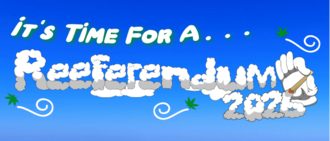.png)
